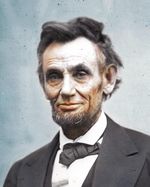 With the next Presidential race starting to heat up, and with my spring vacation now underway, I decided it would be fun to write about the best Presidents and (next week) the worst ones, from the perspective of my own view on history.
With the next Presidential race starting to heat up, and with my spring vacation now underway, I decided it would be fun to write about the best Presidents and (next week) the worst ones, from the perspective of my own view on history.
I see generational patterns repeating, each generation driven by a different industry, and each sparked by a crisis that threatens the very foundations of our democracy. The best Presidents have been those who looked crises in the eye, and overcame them, creating political assumptions that lasted for a generation. The worst have generally been those who led us into these crises.
Enjoy the list, please feel free to post your disagreements. Let’s have some fun with this:
- Abraham Lincoln – There can be no other. He led us through our worst crisis, he dominated the 19th century as no other figure. Lincoln was also the best writer ever in the White House. Even without a war he would have been a giant. The Homestead Act. The Intercontinental Railway. Land grand colleges. He opened the West. Without Lincoln our continent would be like South America, a collection of squabbling, minor powers, without a central government and ennobling ideals strong enough to prevent dictators from seizing, and keeping power.
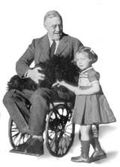 Franklin Roosevelt – The Lincoln of the 20th century. He created the government we have today. He led us, not through the crisis we thought we were facing in the Depression, but the far more existential crisis we were in fact facing with World War II. He saved democracy, he saved capitalism. He feared our seeing him as crippled but it’s his wheelchair that now stands out in memory, his ability to absorb pain and deliver inspiration from it.
Franklin Roosevelt – The Lincoln of the 20th century. He created the government we have today. He led us, not through the crisis we thought we were facing in the Depression, but the far more existential crisis we were in fact facing with World War II. He saved democracy, he saved capitalism. He feared our seeing him as crippled but it’s his wheelchair that now stands out in memory, his ability to absorb pain and deliver inspiration from it.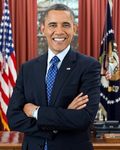 Barack Obama – History will record this President as the most important in this century. He promised change and delivered, despite the greatest crisis since the Depression, despite an opposition as stiff as the Confederacy. Health care, gay rights, a negotiated foreign policy, and prosperity are just part of his legacy. His speeches will be quoted by your grandchildren the way Lincoln’s were in my time. No other country could have produced such a man, and he used that symbolism to open doors for billions.
Barack Obama – History will record this President as the most important in this century. He promised change and delivered, despite the greatest crisis since the Depression, despite an opposition as stiff as the Confederacy. Health care, gay rights, a negotiated foreign policy, and prosperity are just part of his legacy. His speeches will be quoted by your grandchildren the way Lincoln’s were in my time. No other country could have produced such a man, and he used that symbolism to open doors for billions.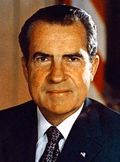 Richard Nixon – I hate to write this, but the second half of the 20th century was defined by him. He created our environmental agencies, he opened up China, and while his excesses destroyed him, that destruction boundaries future Presidents must honor. He created the modern dollar, ended the nation’s second Civil War, and was in many ways the most liberal President ever, even while speaking for, and ushering in, a conservative era.
Richard Nixon – I hate to write this, but the second half of the 20th century was defined by him. He created our environmental agencies, he opened up China, and while his excesses destroyed him, that destruction boundaries future Presidents must honor. He created the modern dollar, ended the nation’s second Civil War, and was in many ways the most liberal President ever, even while speaking for, and ushering in, a conservative era.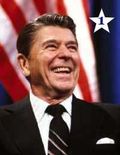 Ronald Reagan – I’m a Democrat, but give Reagan his due. He made his life a symbol of what the modern Republican Party tries to be. He made manifest the conservative legacy Nixon left unfinished. He remains America’s ideological touchstone. His place in this list may fall, as the cost of his Afghanistan policy, his tax cut policies, and his ideological Supreme Court appointments add up, but for now he stands above the rest.
Ronald Reagan – I’m a Democrat, but give Reagan his due. He made his life a symbol of what the modern Republican Party tries to be. He made manifest the conservative legacy Nixon left unfinished. He remains America’s ideological touchstone. His place in this list may fall, as the cost of his Afghanistan policy, his tax cut policies, and his ideological Supreme Court appointments add up, but for now he stands above the rest.









I would love to read your take on JFK, Dana
Of course, he lived too short … and we now know of failings not public at the time. But from my view as an adolescent in the D.C. area when he was elected, JFK brought what seemed like a new, dramatically higher level of innovation, vitality and intelligence to the Federal government that has yielded benefits to many subsequent administrations of both parties.
I would love to read your take on JFK, Dana
Of course, he lived too short … and we now know of failings not public at the time. But from my view as an adolescent in the D.C. area when he was elected, JFK brought what seemed like a new, dramatically higher level of innovation, vitality and intelligence to the Federal government that has yielded benefits to many subsequent administrations of both parties.